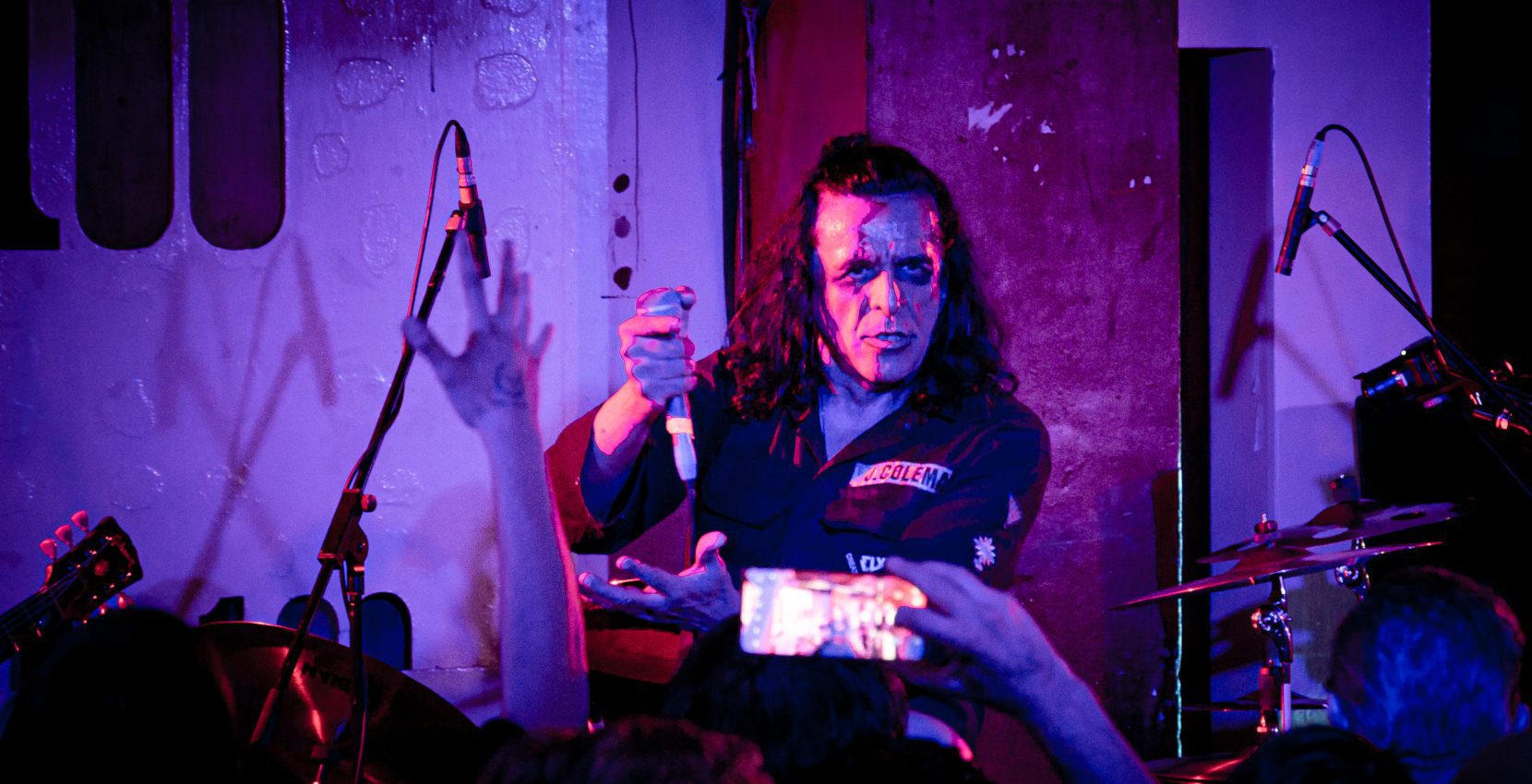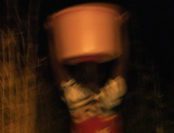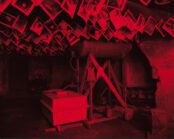A few days before a history-making show at the Royal Albert Hall, the incomparable Killing Joke played a much smaller but no less historic show at the 100 club. A venue steeped in rock and roll history, and punk in particular. In 1976 they staged the first punk festival featuring the Sex Pistols, The Clash, Siouxsie and the Banshees, The Damned and Buzzcocks. But tonight, amongst members of the Pistols, musicians, French and Finnish fashion models and a room full of die hard fans, the Gatherers, a dark spell would be cast.
The 100 club is a kohl eyed basement under Oxford circus and with the lights she looks her all her experienced 80 years, but dimly lit and heaving with the black clad gyrations of 40 decades of punk, it’s a decadent scene of gross release, grim rejoice and unrelenting metallic tension. They often play bigger gigs but for the faithful Killing Joke at the 100 Club has a sense of history that might only be topped by, well, playing the Royal Albert Hall.
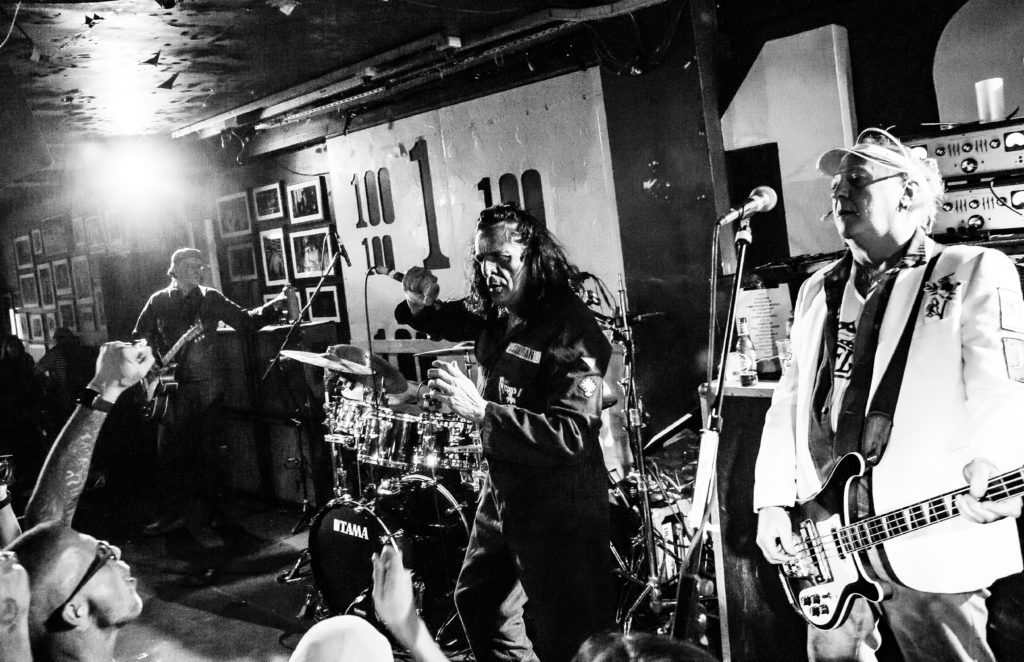
Killing Joke arrived fully formed. Their 1980 post-punk defining debut, Killing Joke, was the blueprint for a new underground musical movement, one alienated by Punk’s uniformed nihilism, one that embraced the weirder possibilities of outsiderdom. Driven by technology, new guitar forms, bass melodies, tribal industrial grooves and the touched genius of Jaz Coleman it’s still a high benchmark for any band. Even Killing Joke.
For Coleman, Paul Ferguson, Geordie Walker and Martin ‘Youth’ Glover from then to now has been a storied journey of impossible highs and interminable desultory lows. However, when taken as a whole their history is charmed. Chart success and acclaim in the 80s was followed by two decades of solid releases and steady touring but never capturing the zeitgeist like their first decade. Then the last twenty years in the carnal misanthropy of the new millennium have seen the band build and become more vital than ever. Not just as a band but as a cultural force. If any band encapsulates the danceable darkness and foreboding we feel against contemporary groupthink conditioning it is Killing Joke asnd, without irony, sharing in that feeling feels powerful. Killing Joke know what they have.
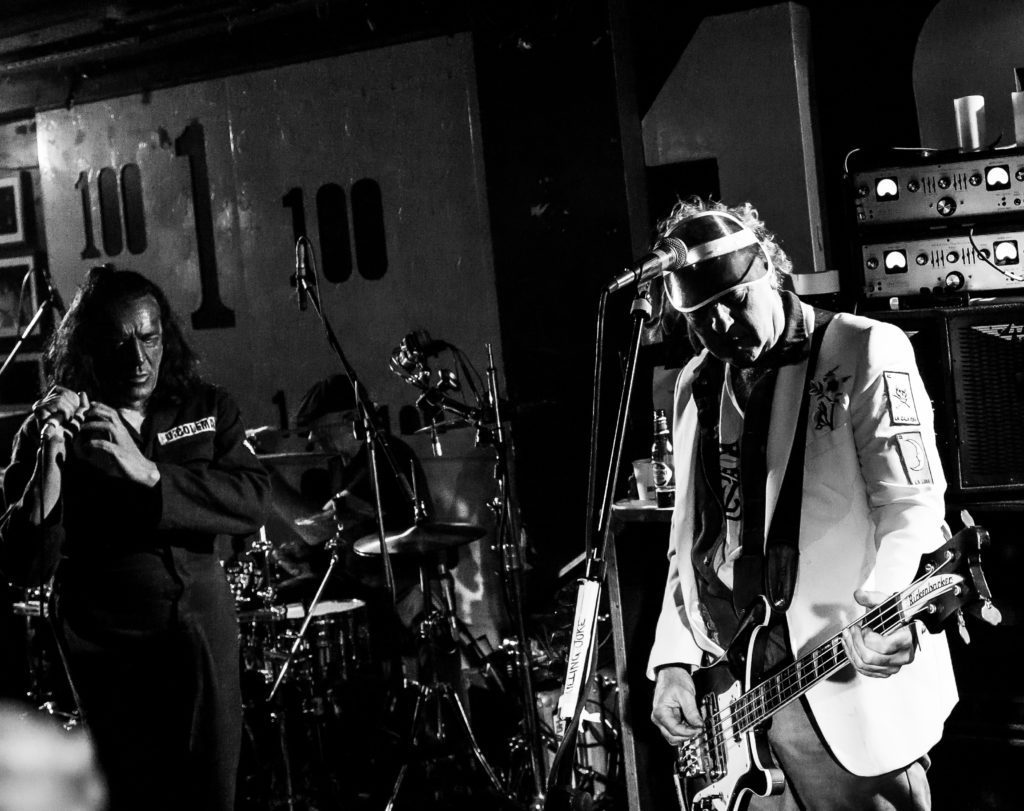
Striding through the audience to the 100 club stage Killing Joke exudes a gang-like nonchalance but there’s often a tinge in there. A sense of gravity, of expectation, and dedication to summoning that special atmosphere. Nodding to well wishers they acknowledge the risks involved with being a band like Killing Joke. A band that goes beyond recitative and into the shamanic performative, the risk is that it doesn’t touch enough of the divine chaos to ascend. Part of that is whether the sound is good, how wearied they are, and the audience itself. None of which are a given on any given night. Singers carrying the focus of a band and for Killing Joke, a lot rests on Coleman; vocally, physically and spiritually. His engagement with the playa of the gig, with the crowd, amidst the music is the catalyst for those special moments. Sometimes though it is through struggle that the biggest rewards are won.
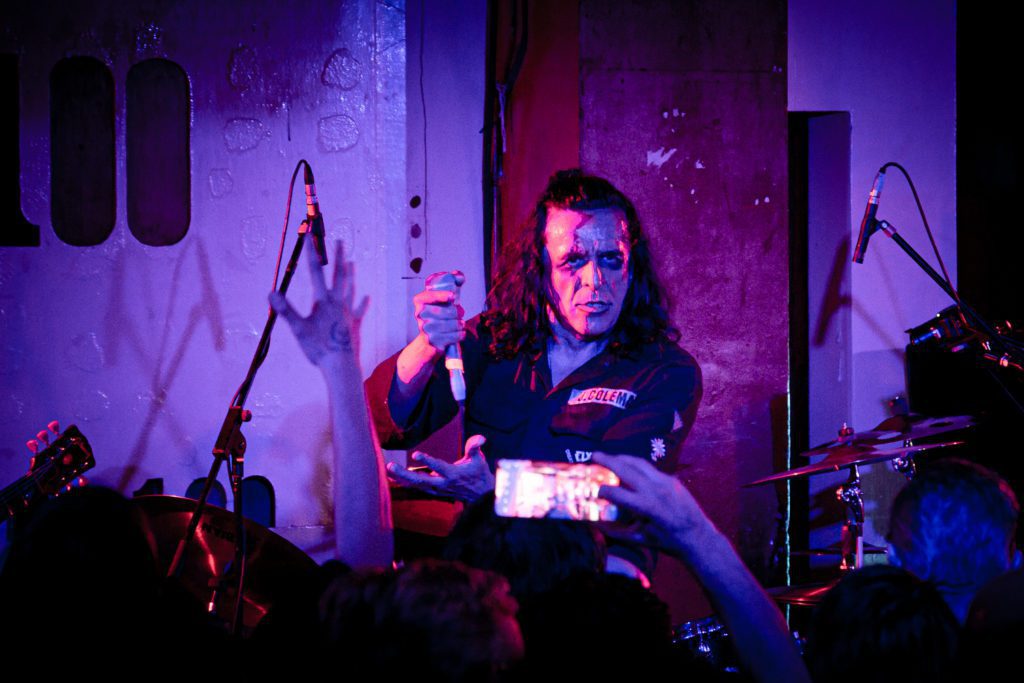
At the 100 Club show Coleman was present and focused but through the set there were moments when the band felt out of sync and a thread went slack. Coleman stands on the shoulders of giants and in places Geordie’s guitar lost its crisp attack and Youth’s bass seemed subdued, perhaps underpowered. Limitations of the venue or early wobbles, it’s hard to say. Rumours circulate that some technical issues plagued the show, whatever, it’s against adversity that bands shine and they did. Each time there was dip the band rallied and coalesced with determined ferocity, focusing on Ferguson’s groove and bringing it back to the one.











Killing Joke are a collaborative advance unit, each member in the moment and when something flags they recover with ferocity, slack lines drawn tight and the dynamic shift from groove to pounding assault part of the experience. The best gigs are those where the audience is part of the swerve, the music overreaches and you wonder will they pull it back? For all the ramshackle chaos of Killing Joke in every gig there is a sublime moment. A moment when the audience is not just at the gig, but in it.
Having seen Killing Joke several times over the last few decades there are fewer glorious moments than hearing them play ‘Pssyche’ and the final song of the encore was probably the best version I’ve heard. Against expectation, sonic obstacles, to a crowd of family, followers and friends like Glen Matlock they drew it together and swung the hammer.
“We work best in crisis mode” – Geordie Walker (Classic Rock)
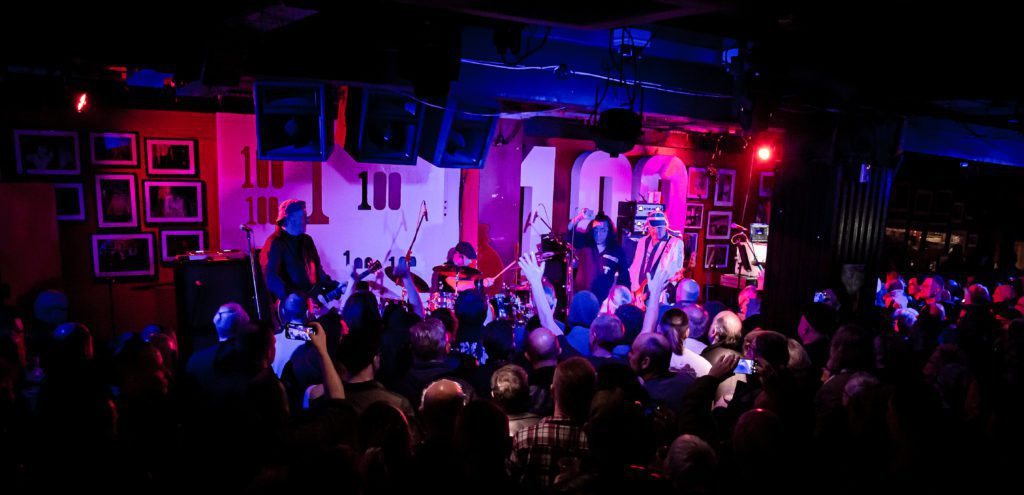
Geordie seems to play best when he’s working against something, engaged with a ‘enough’s enough’ sort of music direction. By the end of the set he was fully dialled in and committed to sonic murder. Something that few recognise in his playing is his sense of swing. Over the contrapuntal rhythms of Ferguson’s tribal beat and Youth’s melodic bass playing, his repetitive playing changes the dynamic thrust of the music from a fluidity to a krautrock-like attack. Bringing that physical drama together in one song, Pssyche, Killing Joke proved why they are less a band than a political sacrament and why they deserve to sell out the Royal Albert Hall several times over.
Killing Joke 9th March 2023, 100 club, London
Photographs by A Tonnerre

The aim of art is to represent not the outward appearance of things, but their inward significance. – Aristotle

